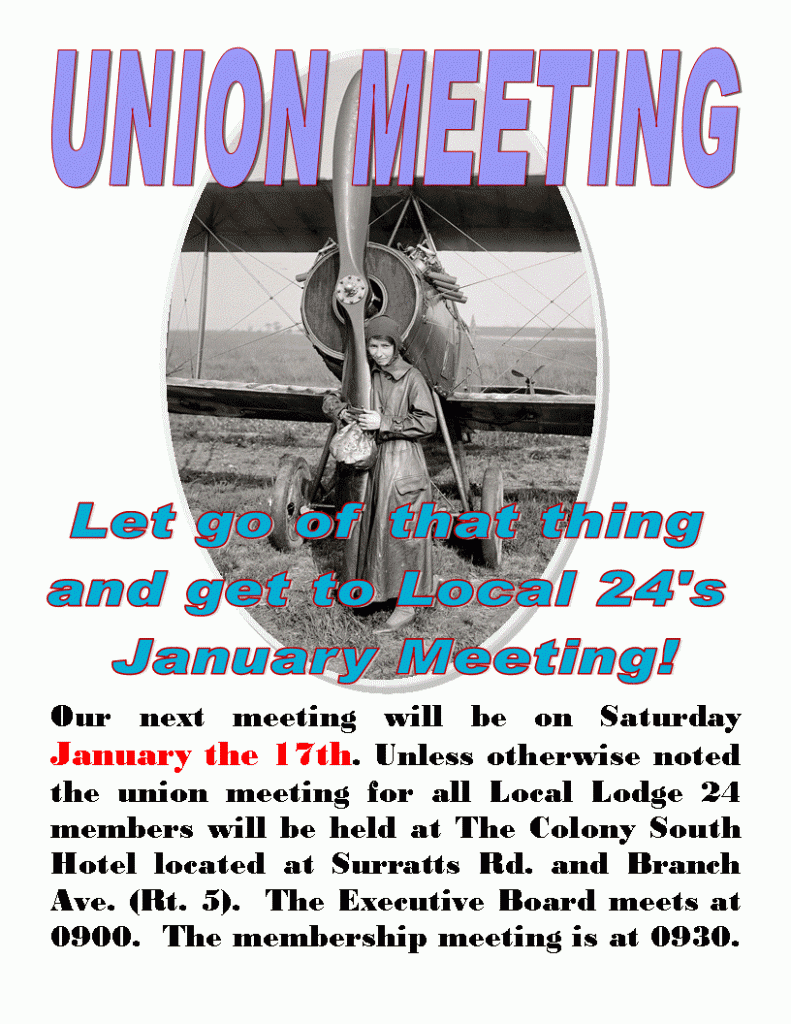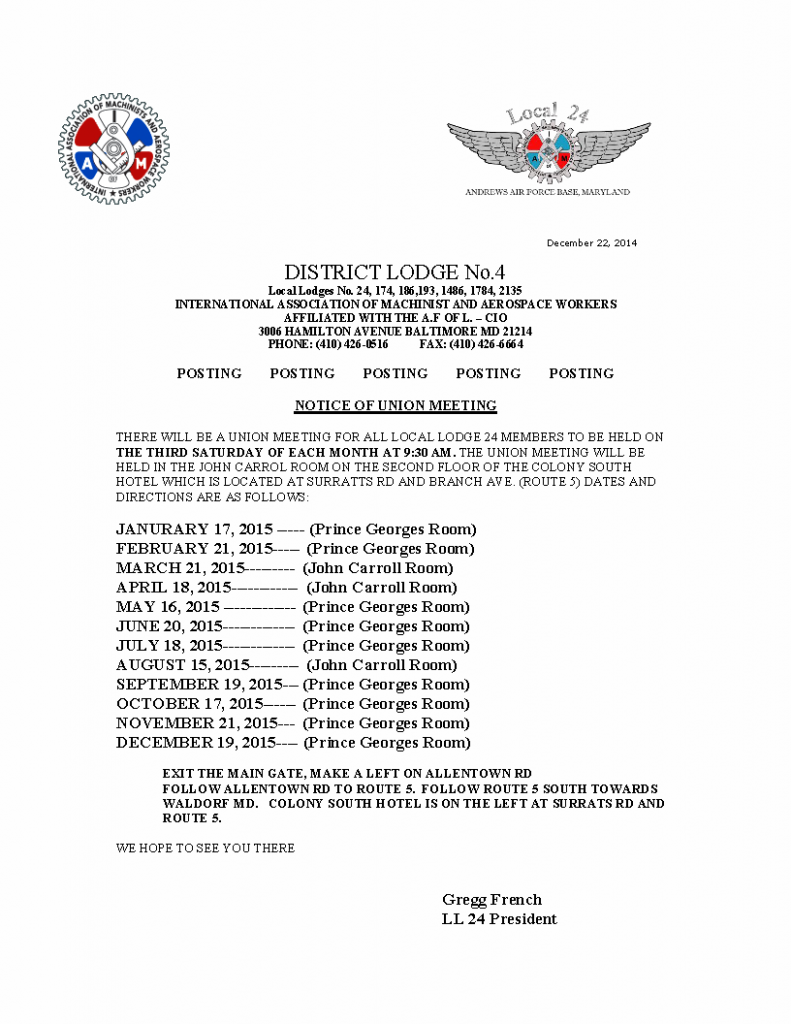In a very complicated case an arbitrator has sided with the union and agreed to reinstate and award back pay for almost an entire year to Mr. Andre des Anges who was terminated without just cause last February. Mr. Anges is an aircraft mechanic at Andrews AFB in Maryland.
Congratulations to Mr. Anges, District 4 Business Rep Rick Compher, Local 24 President James Petty and Chief Steward Tim Hanson for winning this hard fought case!
What is Just Cause?
What is Just Cause? One of the most important if not the most important differences between union members and non-union members is that union members are protected by Just Cause provisions in their contracts.
Non-union members are usually employed as “At Will” employees. At Will means that you can be fired for almost any reason or no reason at all. You work at the total whim of your employer. Of course this leads to employees afraid to speak up about health, safety and other problems in the work place.
It also leads to toadyism, suck-ups and syncopates. Kissing up to the boss is the best way to stay out of trouble and out of the unemployment line!
Just Cause simply means that you cannot be disciplined without the company having a good reason and following certain rules that protect the worker from arbitrary, capricious and vindictive treatment. It is not a protection for lazy or unsafe workers. If you mess up the company will have just cause to discipline you.
All union members should be familiar with the concept of Just Cause so that they can help their Shop Steward mount an effective defense if they are ever disciplined or threatened with discipline. Please take the time to read the following, it might save your job someday.
The Seven Tests for Just Cause
In 1964, Arbitrator Carroll Daugherty established a single standard to determine if the discipline or discharge of an employee can be upheld as a just cause action.
In the Seven Tests of Just Cause, the employer must be able to answer YES to the following seven questions:
1. Reasonable Rule or Order
Was the employer’s rule or managerial order reasonably related to the orderly, efficient and safe operation of the business?
• This rule or order must not be arbitrary, capricious or discriminatory and must be related to the employer’s stated goals and objectives.
• Even if this order is unreasonable, the member MUST obey, except in cases when doing so would jeopardize health or safety.
2. Notice
Did the employer give any warning as to any possible discipline or consequence that could result from that employee’s action or behavior?
• While maintaining the contractual right to manage it’s workforce by establishing the rules and orders necessary, the employer is responsible for informing the employees as to their meaning and application.
• The employer must advise the employee that any act of misconduct or disobedience would result in discipline.
• This statement should be clear, unambiguous and inclusive of any possible penalties.
3. Investigation
Prior to administering discipline, did the employer conduct an investigation to determine whether the employee did in fact violate or disobey a rule or order?
• The employer’s investigation must be made BEFORE any disciplinary action is invoked.
• The employer is prosecutor, judge and jury in discipline cases, and must bear the full responsibility for collecting any and all facts that are relevant to the final decision.
4. Fair Investigation
Was this investigation fair and objective?
• The employer has the obligation to conduct a fair, timely and thorough investigation that respects the employee’s right to union representation and due process.
• Once gathered, all facts must be evaluated with objectivity, and without a rush to judgment.
5. Proof
Did this investigation uncover any substantial proof or evidence that the employee was guilty of violating or disobeying a direct rule or order?
• Although there is no requirement of being preponderant, conclusive, or “beyond a reasonable doubt,” any proof or evidence must be truly substantial.
• While conducting the investigation, the employer must actively seek out witnesses and search for evidence.
• If an offense cannot be proven, then no penalty could ever be considered just.
6. Equal Treatment
Did the employer apply all rules, orders and penalties evenhandedly and without discrimination to ALL employees?
• If other employees who commit the same offense are treated differently, there may be discrimination or disparate treatment, both of which would automatically violate this test.
7. Penalty
Was the degree of discipline administered reasonably related to either the seriousness of the employee’s offense or to the record of past service?
• A proven offense does not merit a harsh discipline unless the employee has been proven guilty of the same (or other) offenses several times in the past.
• Though an employee’s past record cannot be used to prove guilt in a current case, it can be used in determining the severity of discipline if guilt is established in the current case.
• Should two or more employees be found guilty of the same offense, their respective records will be used to determine their individual discipline. Thus, if employee A has a better record than employees B or C, then the employer has a right to give a lighter penalty to employee A without being discriminatory.
• The employee’s offense may be excused through mitigating circumstances. For example, a warehouse employee found asleep on the job may be excused by the mitigating circumstance of being under medication by the company doctor. Or, an employee with domestic troubles may be proven incompetent rather than negligent, the latter indicating a willful deliberation.




